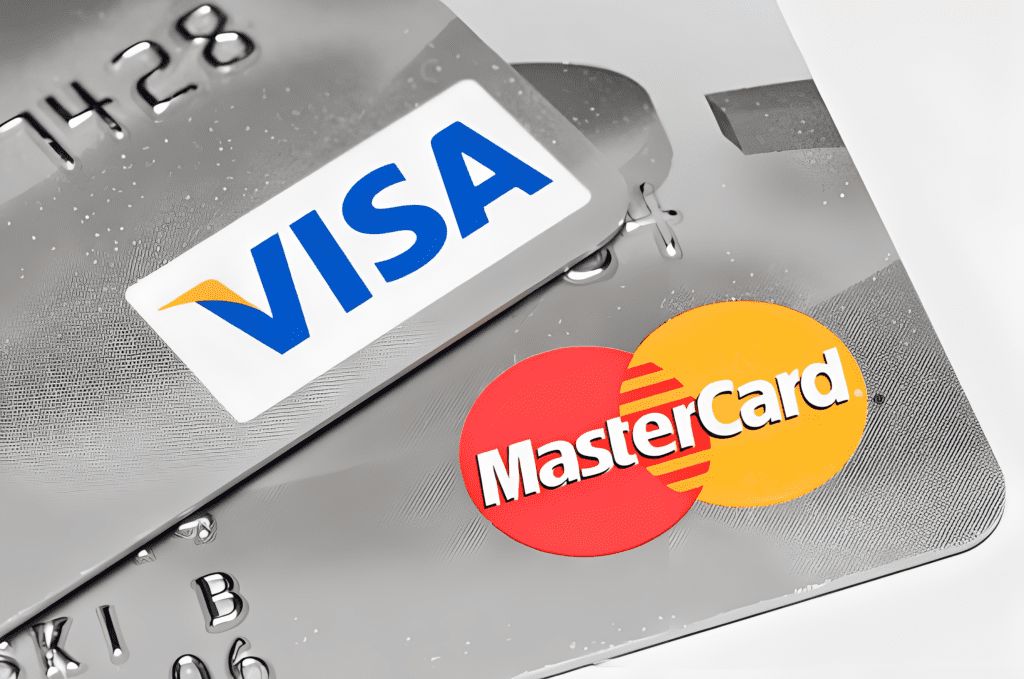“How to Find the Best Credit Card in 2024” is a common dilemma, given the multitude of choices and ever-evolving rewards programs. Navigating through this overwhelming array of options can be a challenging task. The key lies in identifying the credit card that aligns perfectly with your lifestyle. Instead of exhaustively scrutinizing every card available, concentrate on these crucial criteria to streamline your selection process:
Essential Considerations for Picking the Best Card
Fees
-Annual Fees
When it comes to the Best Credit Card, premium travel rewards cards typically come with annual fees ranging from $95 to $550. However, standout options such as the Chase Sapphire Preferred manage to provide sufficient annual credits, points, and perks that can effectively counterbalance the associated costs. Although the Chase Sapphire Reserve carries a $550 fee, factoring in benefits like the $300 travel credit, 3x points on travel and dining, airport lounge access, and various other perks may make it a worthwhile investment for avid travelers.
For no-frills cashback cards, avoid annual fees. Excellent options without yearly fees include the Citi Double Cash and the Wells Fargo Active Cash card.
-Balance Transfer Fees
If you carry debt from month to month, balance transfer fee percentages and caps deserve attention. The best balance transfer credit cards, such as the Citi Simplicity card, offer intro 0% interest periods with limited 3% transfer fees.
Interest Rates
When it comes to interest rates, every percentage point matters. High rates may not impact you if you pay balances off monthly. But we all face financial surprises, so having a low-interest rate is a backup matter.
Cards with leading variable APRs of around 16% include the Bank of America Customized Cash Rewards or the Chase Freedom Flex. Those with exceptional credit can qualify for rates closer to 13% with cards like the First Citizens Cash Rewards Plus.
Rewards Rates
Cash back and travel rewards rates should align with your common spending categories. Look for 5% or higher cashback rates in areas like:
- Gas – Costco Anywhere Visa
- Groceries – Blue Cash Preferred
- Dining/Entertainment – Capital One Savor Family
- Rotating Categories – Discover It
For travel rewards, cards like the Capital One Venture X offer exceptional earning potential in categories such as car rentals, hotels, and flights.
You can use accrued rewards. Many travel cards allow transferring miles to partners for maximum value. Cash back should provide versatile redemption options – cash, gift cards, statement credits, or more.
Valuable Perks
Alongside rewards, perks like airport lounge access, travel insurance, rental car coverage, and purchase protections can provide hundreds in incremental value yearly with premium cards. Especially beneficial for frequent travelers are perks like:
- TSA PreCheck/Global Entry Fee Credits
- Priority Pass Lounge Membership Access
- Travel and Rental Car Insurance Coverage
- Hotel Elite Status
Approval Odds
Nothing is more discouraging than applying for a card only to get rejected due to credit factors. First, check your credit score and make sure it meets approval thresholds. Many top reward cards require 700+ scores for approval.
Next, use prequalification tools to confirm you meet eligibility requirements without needing to apply immediately. This “soft check” allows you to browse cards you stand the best shot at getting.

Top Credit Cards to Consider in 2024
Best Flexible Travel Rewards
Chase Sapphire Preferred
The Chase Sapphire Preferred Card has consistently held its position as the Best Card for travel rewards for over a decade, owing to its successful combination of valuable points, travel protections, and redemption flexibility.
$95 Annual Fee (Waived Year 1)
When considering the Best Card, the $95 annual fee may appear steep when compared to no-fee alternatives, but it is waived for the initial year. The 60,000-point signup bonus adds substantial value, effectively offsetting annual fees over a span of five years. If you take advantage of the card benefits, this fee translates to receiving tens of thousands of points for a monthly cost of less than $10.
60,000 Bonus Points ($750 Value)
New card members can earn 60,000 bonus points by spending $4,000 on purchases within three months of account opening. At $.0125 per point cash redemption value, those 60k points hold a minimum value of $750. However, when transferred to airline/hotel partners, their value often exceeds $1000.
5x Points on Chase Travel
The Sapphire Preferred offers an exceptional 5 points per $1 spent on any travel you book through the Chase portal, including flights, hotels, rental cars, cruises, and activities. This elevates the rewards earning potential on these frequent expenses above most other travel cards. Each point valued around $.0125 when redeemed for cash back equates to over 6% back in these categories.
Capital One Venture X Rewards Credit Card
With a hefty welcome bonus and generous travel and dining rewards, Capital One Venture X quickly emerged as a top contender among premium travel cards after its 2021 launch.
$395 Annual Fee
The $395 annual fee is one of the highest among personal cards. However, with perks like up to $300 back in statement credits each year for bookings like hotels, car rentals, and Airbnb, the effective annual fee is under $100
75,000 Mile Signup Bonus
New cardholders can earn 75,000 bonus miles, worth $750 in travel redemptions, after spending $10,000 on purchases within six months of account opening. The card pays for itself in the first year between this bonus and the annual statement credits.
10x Miles on Capital One Travel
Cardholders earn a stellar 10 miles per $1 on hotels and car rentals booked through Capital One Travel. With miles valued around 1 cent each toward travel, that equates to a lofty 10% back. This elevated earning makes Venture X a go-to for hotel and rental car spending.
Best Cash Back
Citi Custom Cash Card
The Citi Custom Cash Card is a compelling option for maximizing daily spending. It has no annual fee, lucrative category bonuses, and a friendly welcome offer.
No Annual Fee
Unlike premium travel cards that charge $95+ yearly, the Citi Custom Cash has no annual fee. This makes it easier to keep long-term and take advantage of its rewards without worrying about justifying another fee.
$200 Signup Bonus
New Citi Custom Cash cardholders can earn a $200 cash signup bonus after spending just $750 on purchases in the first three months after opening an account.
5% Cash Back on Top Spending Category
The Citi Custom Cash shines with its 5% cash back offering in your single highest eligible spend category each billing cycle. The 5% cashback applies to up to $500 monthly category purchases. Gas, groceries, dining, select travel, select transit, select streaming services, drugstores, home improvement stores, live entertainment, electronics stores, and more all qualify. This flexibility to customize rewards to match spending makes it invaluable.
Wells Fargo Active Cash Card
For a no-annual-fee cash-back card, the Wells Fargo Active Cash card presents an appealing option. It offers 2% cash rewards across the board and a lucrative signup bonus.
No Annual Fee
Unlike premium travel cards, the Wells Fargo Active Cash card has no annual fee to erode rewards. This makes it an easy keeper card in your wallet for the long run.
$200 Signup Bonus
New cardholders can earn a $200 cash rewards bonus after spending $1,000 on purchases in the first three months after opening an account. This nicely boosts earnings in the first year.
2% Cash Back on All Purchases
The Active Cash Card earns an unlimited 2% cash reward on every single purchase without needing to track categories or activate quarterly bonuses. This flat-rate return makes it easy to maximize rewards across all your daily expenses, from groceries and gas to shopping and bills. Over a year, those 2% rewards add up, providing a 50% boost over a typical 1% baseline card.
Best Balance Transfer
Citi Simplicity Balance Transfer Card
Regarding balance transfers or debt consolidation, the Citi Simplicity card stands out with an exceptionally long 0% intro APR period on transferred debt and no annual fee.
No Annual Fee
The Citi Simplicity card features no annual fee, which saves you money compared to other balance transfer cards with fees up to $95/year. You get the extended 0% interest period without an annual bill eating into your potential savings.
0% Intro APR for 21 Months
Cardholders receive 0% APR on balance transfers completed within the first four months from account opening. This provides nearly two full years to pay off your transferred debt interest-free before a 16.49% – 26.49% variable rate applies.
One of the Longest Promotional Rate Periods
At 21 months, Citi Simplicity offers one of the most extended 0% intro rate terms available on balance transfers, while most balance transfer cards provide between 12 and 18 months. This extended period gives you ample time to aggressively pay down your high-interest debt at a lower-interest cost savings.
Bank of America Balance Assist Credit Card
The Bank of America Balance Assist card presents a solid balance transfer option with an 18-month billing cycle, a 0% intro period, and capped transfer fees.
No Annual Fee
The Balance Assist card does not have an annual fee, which makes it more affordable to maintain long-term for its introductory savings benefits.
0% Intro APR for 18 Billing Cycles
New cardholders benefit from 0% intro APR on balance transfers made within the first 60 days of account opening for 18 billing cycles. This provides over a year of interest-free time to pay down debt transferred from high-rate cards without raising interest fees.
3% Balance Transfer Fee (max $99)
Transferred balances incur a balance transfer fee of 3% of the amount transferred or $10 minimum. This fee is capped at a maximum of $99 across all your balance transfer requests, making consolidation transfers considerably more affordable. The 18 months of 0% interest can yield substantial net savings despite this moderate upfront fee.
Final Thoughts for Best Credit Card in 2024:
With hundreds of credit cards available, identifying the best match for your financial needs feels overwhelming. However, focusing the decision around key factors simplifies the shopping process. First, compare annual costs and benefits to ensure rewards exceed fees—or that a $0 fee aligns with basic needs. Next, dive into rates, rewards, and perks directly impacting everyday card use across spending categories like groceries, gas, travel, and bills. If you frequently fly United, prioritize flexible travel miles to transfer into MileagePlus over generic cash back. Regularly shop on Amazon? Opt for a card offering bonus rewards at Amazon or online retail stores versus bonus earnings only in rotating quarterly categories.
Finally, a realistic credit score assessment can steer you away from disappointment over a rejected application. Pre-qualify for your short list of target cards using eligibility checks to confirm what offers you stand to be approved for now. This focused approach reduces anxiety over picking the “perfect” card amid endless choices. By determining the top 1-2 optimal cards matching your fixed cost tolerance and variable spending habits, you can identify the best account for your wallet in 2024.
What credit score is needed for the best rewards cards?
For top-tier premium travel rewards cards expect approval scores around 700+ while cash back or basic cards may approve around 670+. Always check your approved odds first.
Do I lose my credit card rewards points if I cancel a card?
Generally, you need to use or redeem any accumulated rewards before canceling a credit card account. Once canceled, those points are at risk of being forfeited.
Should I avoid cards with annual fees?
Not necessarily. Cards with annual fees often offset those costs with enough perks, credits, and rewards bonuses to produce a positive return if you use the benefits. But no fee cards work if you want simplicity.
What is the best way to compare multiple card bonus offers?
Focus on the actual dollar value of bonuses instead raw points numbers to make the most accurate comparisons between offers. Also, factor in eligibility spending requirements.
How often can I apply for new credit cards?
A good general rule is no more than 1 card every 3-6 months. Applying frequently lowers approval odds and credit scores. Let new accounts age before getting more.

